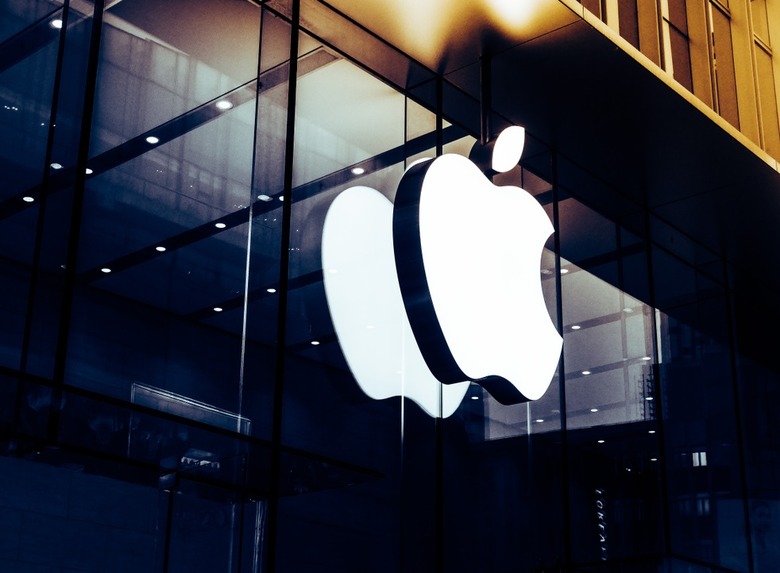Wild Rumor Claims Apple May Release A Car As Early As 2023
While Apple naturally prefers to keep its R&D efforts under wraps, the company in 2015 couldn't hide the fact that it was amassing a large and talented team of engineers with a wide array of expertise across all aspects of the automotive development process. Predictably, the emerging narrative — bolstered by a number of seemingly credible rumors — proclaimed that Apple was dead serious about developing its own branded car.
Breaking into the auto business, however, is immensely challenging, wildly expensive, and fraught with an incredible amount of risk. Consequently, it wasn't all that surprising when The New York Times last year published a report relaying that Apple was scaling back its car initiative — dubbed Project Titan — after failing to make any significant progress. Instead, Apple would focus its energies on developing autonomous systems, a fact which Tim Cook himself confirmed late last year.
Now, seemingly out of nowhere, rumors regarding Apple's interest in developing its own car have sprung back to life courtesy of a new research note from reputed analyst Ming Chi-Kuo. In a note originally obtained by MacRumors, Kuo claims that Project Titan is not only alive and well, but that an Apple car might actually see the light of day before 2025. What's more, Kuo believes that an Apple Car could help propel Apple's market cap passed the $2 trillion threshold.
Kuo's note reads in part:
We expect that Apple Car, which will likely be launched in 2023–2025, will be the next star product. The reasons for this are as follows: (1) Potentially huge replacement demands are emerging in the auto sector because it is being redefined by new technologies. The case is the same as the smartphone sector 10 years ago; (2) Apple's leading technology advantages (e.g. AR) would redefine cars and differentiate Apple Car from peers' products; (3) Apple's service will grow significantly by entering the huge car finance market via Apple Car, and (4) Apple can do a better integration of hardware, software, and service than current competitors in the consumer electronics sector and potential competitors in the auto sector.
While I'd love to be proven wrong, I don't find Kuo's analysis here compelling in the least. Apple managed to succeed in the smartphone market because it was occupied by entrenched companies who, over time, became lazy with power. The automotive market today, in stark contrast, is filled with a number of sophisticated companies — from Tesla to Porsche — who are constantly trying to push the envelope and rethink the way we view the automotive experience. In other words, the room for market disruption within the auto industry today is not anywhere close to what existed in the smartphone market back in 2007.
Moreover, Kuo references Apple's AR capabilities without delving into how this would translate into a compelling feature. Further, who's to say Apple's integration of hardware, software, and services could actually trump what we currently see from some of today's top luxury automakers?
Is Apple perhaps re-exploring the possibility of developing its own car? Certainly. Indeed, the company just re-hired Doug Field, Tesla's former Senior VP of engineering. That notwithstanding, there's still far too little evidence to believe that an Apple Car is an inevitability at this point, especially given the innumerable hurdles the company would have to overcome in order to make such an endeavor worth the herculean effort.
